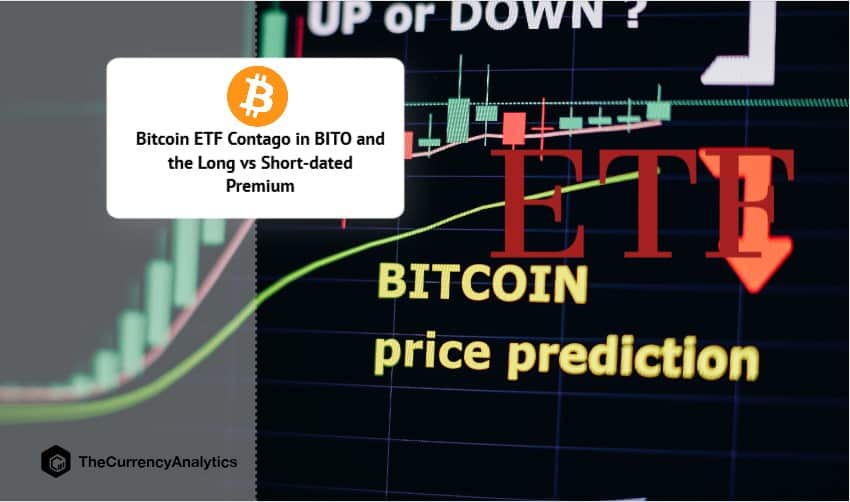
The Contago Issue about Bitcoin ETF is something that every investor should get to know. This means that the sync in value between the “basket of funds” and the “ETF” will not be same. In other words, they will not be numerically identical. For instance, when the price of the Bitcoin goes up by 1%, the reality is that value of the basket will go up, but it will be a little less than 1%.
It is important for new investors to be clear that “BITO holds futures” and not the price of spot Bitcoin. Bitcoin futures trade at a premium to spot interest rate plus perhaps a general expectation of upward price action. The longer the date of expiry of the futures contract, the larger will be the premium.
Every time when the BITO’s futures gets close to expiry, the fund has to sell their expiring futures and buy BITO’s futures with longer dates. Thus, a cost will be incurred. The cost will be equal to the long vs short-dated premium. At this point, the fund will lose money to roll their futures to near each expiry. This process of losing money to roll their futures to a future expiry date is known as Contango.
Contango will lead to price tracking errors with the passing of time. However, the Contango effects in this case will be comparatively smaller, when compared to other products like crude oil futures. Spot bitcoin-backed ETFs will avoid several of the tracking issues caused by Contago and it will be a conceptually simpler product with lower overall costs.
However, the delivery mechanism for spot bitcoin ETF will be cheap and particularly instantaneous by using the blockchain.
The SEC’s final decisions about listing the spot bitcoin ETFs currently under review will become from November through January. The SEC permitting ETF proposals by ProShares and Invesco based on futures contracts is a good sign. Expectations are brewing about the SEC greenlighting the Spot Bitcoin ETF.
The Futures ETF have been filed under the mutual fund guidelines and the SEC Chairman believes that this provides investors with significant protection.
Important to note, the ETFs which are based on bitcoin futures have been already trading on the Chicago Mercantile Exchange.
Previously, the SEC stated that for much of the past decade the volatility and fraud throughout the cryptocurrency space made ETFs and other such funds too risky to approve. This looks like just the beginning. And the SEC probably might approve spot ETF soon.



Get the latest Crypto & Blockchain News in your inbox.